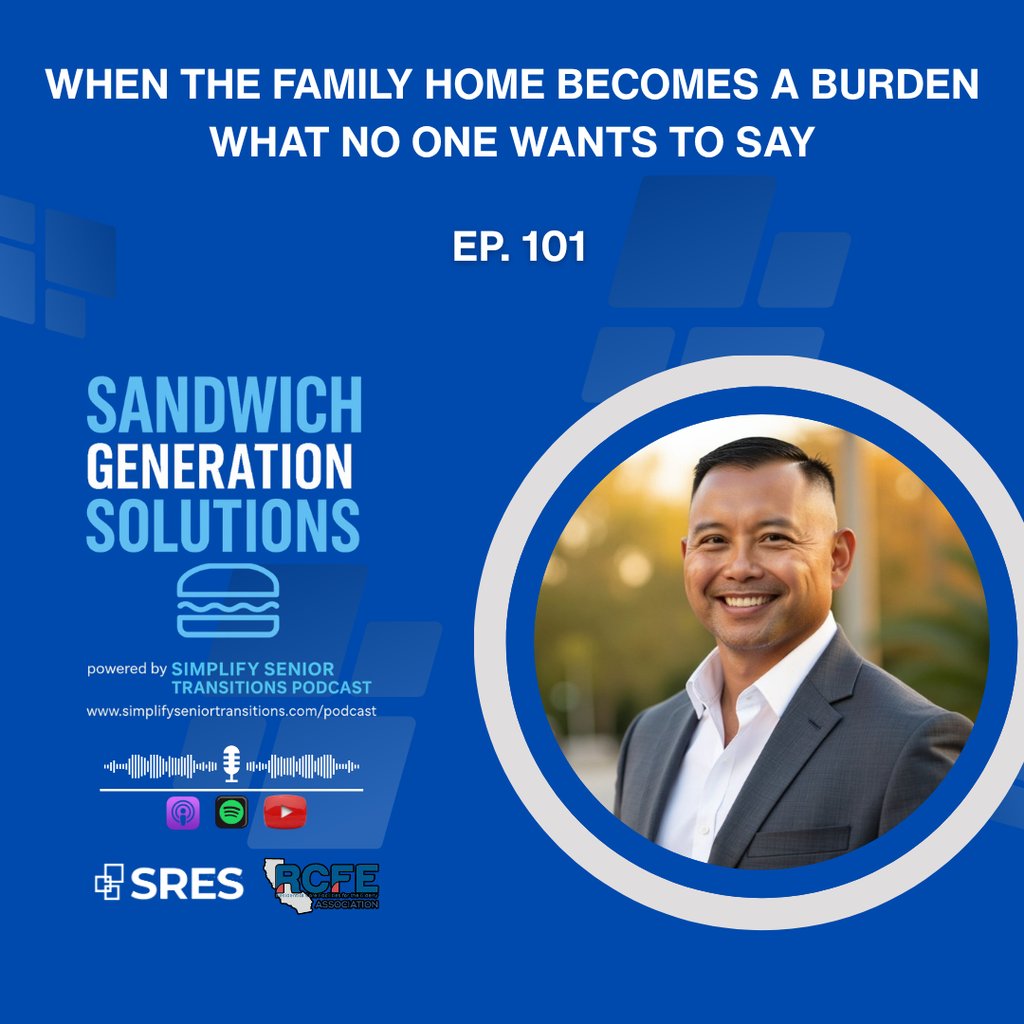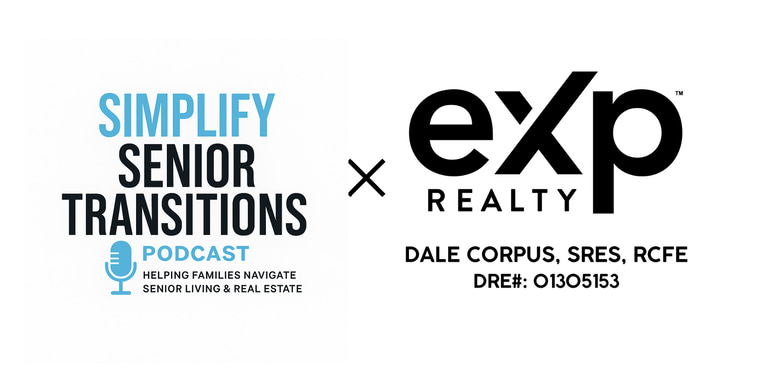When the Family Home Becomes a Burden: What No One Wants to Say
How Bay Area families can honor their parents’ legacy without letting a home become an emotional and financial weight.
Dale Corpus
10/27/20254 min read
🏡 When the Family Home Becomes a Burden 😔🏠 — What No One Wants to Say
If you're an adult child in the San Francisco Bay Area — whether you're navigating the challenges in Walnut Creek, San Mateo, or anywhere across Contra Costa, Alameda, Santa Clara, Solano, Napa, or San Francisco counties — you know the intense demands of the Sandwich Generation. You're juggling your own life while managing the complex decisions of your aging parents' care.
Often, the biggest source of stress isn't the care itself, but the family home.
Every family has that conversation:
"Let's just keep Mom's house for now. She'd want us to hold onto it. We'll figure it out later."
As senior transition specialist Dale Corpus hears all the time from Bay Area families, a home is full of memories, history, and emotion. But sometimes, holding onto it does more harm than good.
🎙️ This episode of Sandwich Generation Solutions tackles the difficult truth: when the family home turns from comfort into burden.
💭 Here's what you'll learn in this episode:
Why families hang onto the home due to emotion or fear, even when it causes stress.
The hidden emotional, financial, and legal costs that multiply over time.
Practical strategies to create a transition plan that honors your parents’ legacy while protecting your family’s future.
Why selling the family home can actually be the most loving and responsible choice.
❤️ The Emotional Weight of Delay
In his work, Dale sees three primary reasons families delay selling the home:
1. Sentimentality: It’s the house where birthdays happened and memories were made.
2. Fear of Regret: The worry that selling means erasing memories or dishonoring a parent's wishes.
3. Avoidance: Nobody wants to tackle the hard conversations, probate, or taxes.
Keeping the family home might feel comforting initially, offering a tangible connection to your loved one. However, over time, it can become a significant emotional weight.
For example, the Ramirez siblings in Walnut Creek decided to keep their mom’s 1960s ranch home for sentimental reasons after she passed away. Fast forward two years, and the house — which sat empty most of the year — became a source of stress, guilt, and unexpected costs. The siblings were divided and fighting over what to do with it.
This emotional burden can fracture relationships, causing siblings to stop speaking over disagreements about whether to rent, sell, or just “can’t let go.”
💸 The Hidden Financial and Legal Drains
Setting emotions aside, the math of keeping a vacant home in the Bay Area doesn't lie. A vacant home constantly drains cashflow and energy:
Monthly Costs: Property taxes, utilities, insurance (which often doubles for vacant properties), landscaping, security, and maintenance can easily total $2,000 to $4,000 a month, even without a mortgage.
Deferred Maintenance: Waiting compounds problems. A small roof leak, if left unfixed, could turn into a $30,000 repair. The Wongs from San Mateo faced this reality when pipes burst, causing $20,000 in water damage just six months after their dad passed away.
Legal Headaches: If the property wasn't properly transferred, it can get stuck in probate for months or years. Waiting too long to update the title can lead to a dramatic increase in property taxes due to reassessment. Furthermore, if you delay the sale for years, you could lose key capital gains tax exemptions that would have applied right after the parent’s passing.
🧭 A Plan for Moving Forward with Purpose
If you are feeling stuck in the cycle of indecision, here are four practical steps recommended by Dale to make the home work for your family — not against it:
Get Clear on Intentions Early:
If your parents are still living, ask them directly: What do you want to happen with the home? Write it down and include it in estate planning documents.Evaluate the Numbers:
Get a realistic property assessment. Compare the cost of upkeep versus the potential equity that could fund senior care, pay off debt, or help the next generation.Have a Family Meeting:
Set aside a time to discuss options without emotion. If needed, bring in a neutral third party — like a senior transition specialist, fiduciary, or estate attorney — to mediate disagreements.Explore Creative Options:
This might mean one sibling buys out the others, you sell the home “as is” to avoid more repairs, or you sell the home and use the proceeds to improve your parents’ quality of life or fund assisted living care.
💬 Final Thoughts
Remember, selling the home doesn’t erase memories.
As the Wongs discovered, sometimes closure comes not from holding on, but from letting go with purpose.
By selling, you are honoring the value your parents built and turning it into something that supports the family today. You are continuing their legacy responsibly.
📞 Need Help Deciding What’s Next?
If your loved one is considering senior living and you need clarity on what to do with their home in the Bay Area, let’s talk.
👉 Schedule a FREE consultation and learn more about navigating these complex real estate transitions with less confusion and more clarity at:
www.simplifyseniortransitions.com
🎧 Want to hear more expert insights and real stories?
Listen to the full episode of the Simplify Senior Transitions Podcast, or DM Dale anytime on Instagram @soldbydale.
📩 P.S. Got news or an amazing story to share? Hit us up at dale.corpus@exprealty.com and you might be featured in our next episode! Remember to check out the transcript for detailed insights.
Watch The Podcast Here



Transitions Made Simple
Helping seniors transition with ease and peace.
📍 Serving the San Francisco Bay Area
📞 GET IN TOUCH
📬 STAY INFORMED
Dale Corpus, SRES, RCFE
📱 925-380-1657
📧 dale@simplifyseniortransitions.com
🕓 Available for free 15 min consultations by appointment
© 2026. All rights reserved.
Sign up for monthly senior transition tips & real estate insights.
